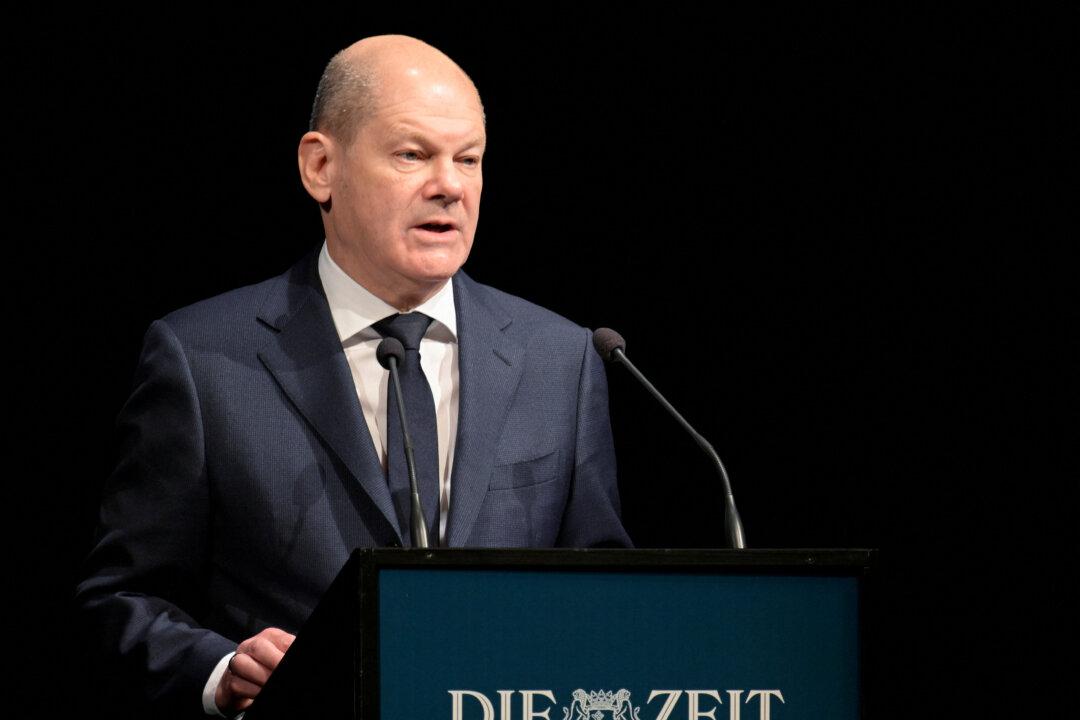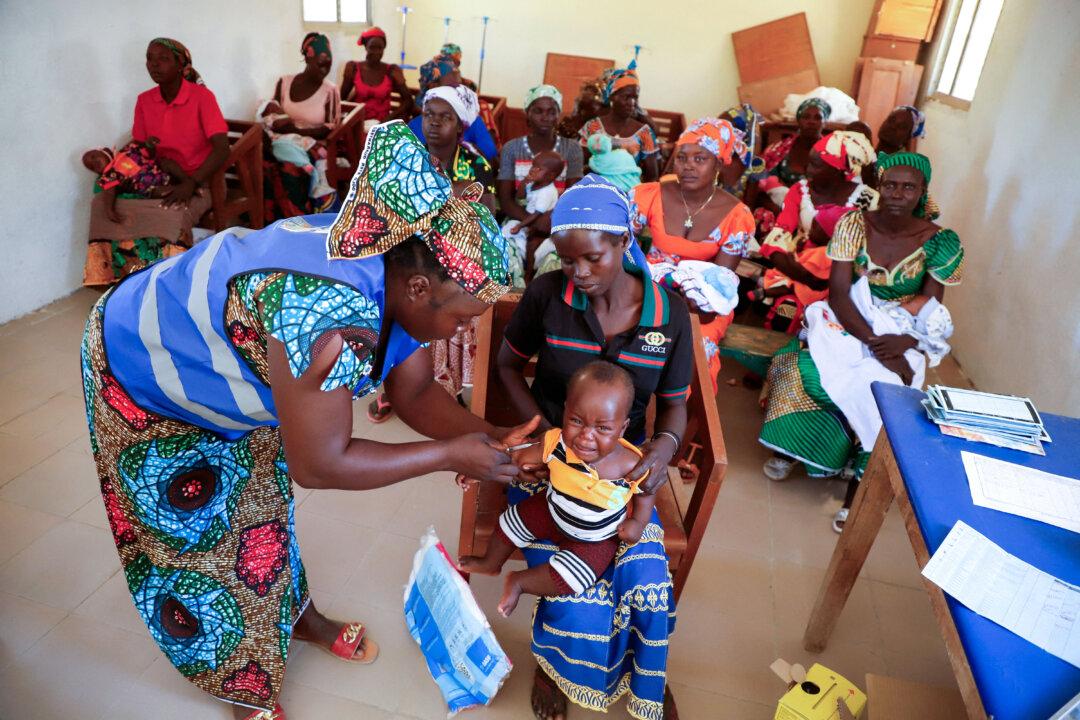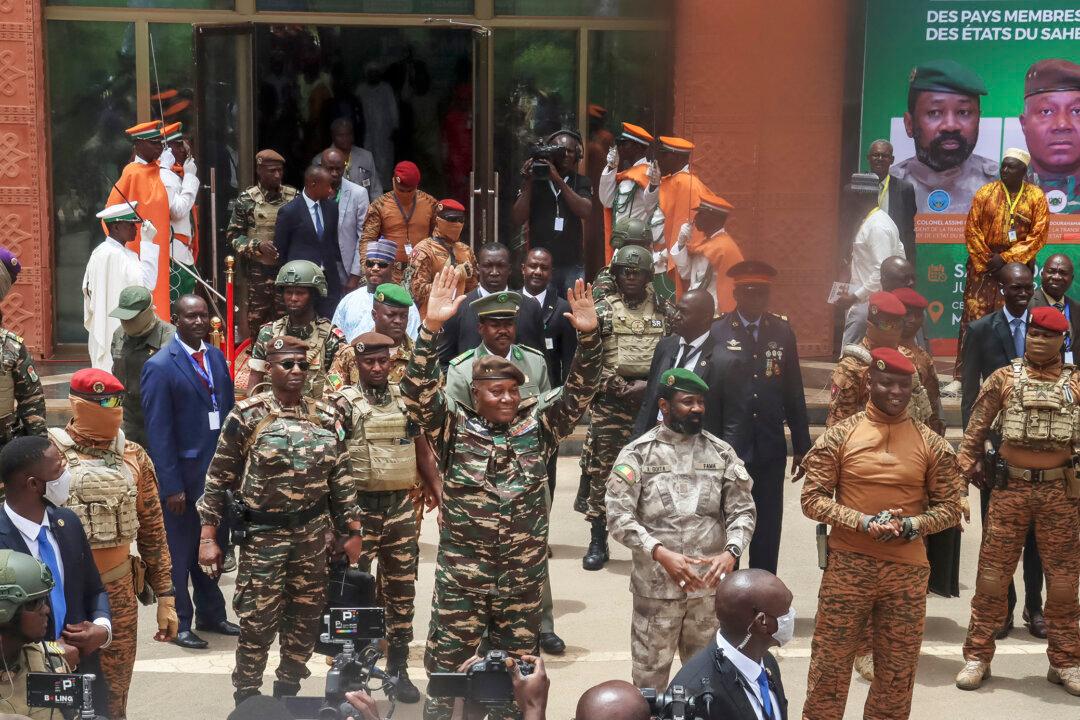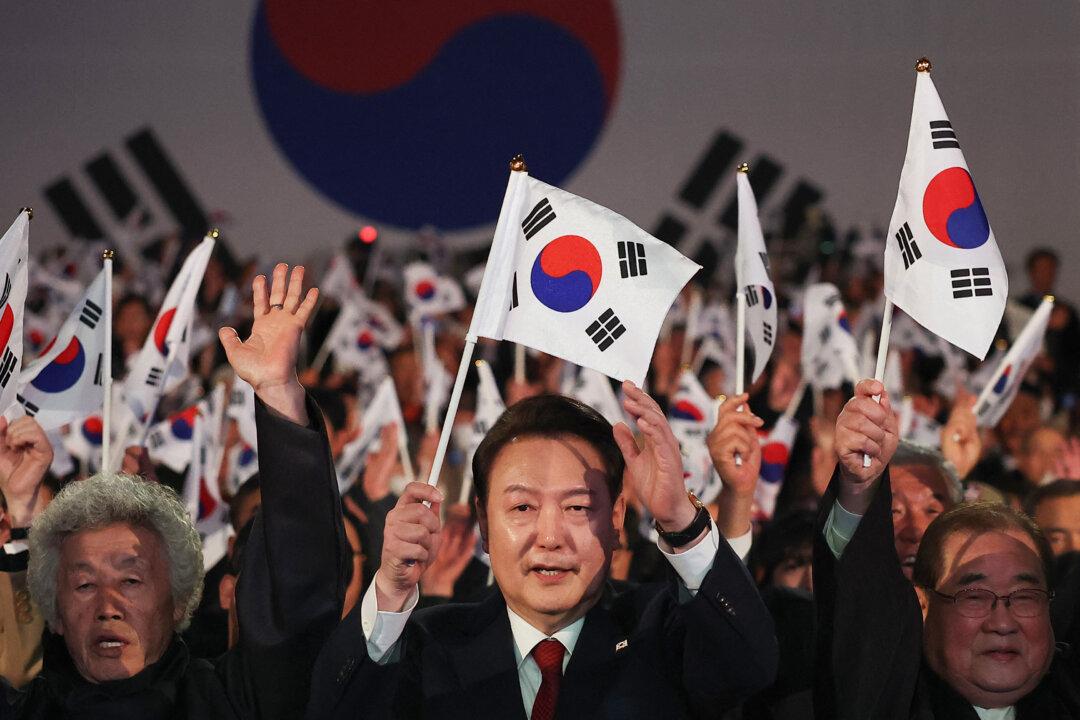German Chancellor Olaf Scholz has resuscitated the frantic effort to rebuild the European Union’s diplomatic and commercial presence in Africa amid growing Chinese and Russian influence in one of the world’s fastest-growing regions.
Scholz’s May 4 to May 7 official visit to Ethiopia and Kenya—his second to the continent in less than a year since taking office—saw him making the case for the African Union (AU) to join the G-20 while discussing economic cooperation and global challenges such as climate change.





